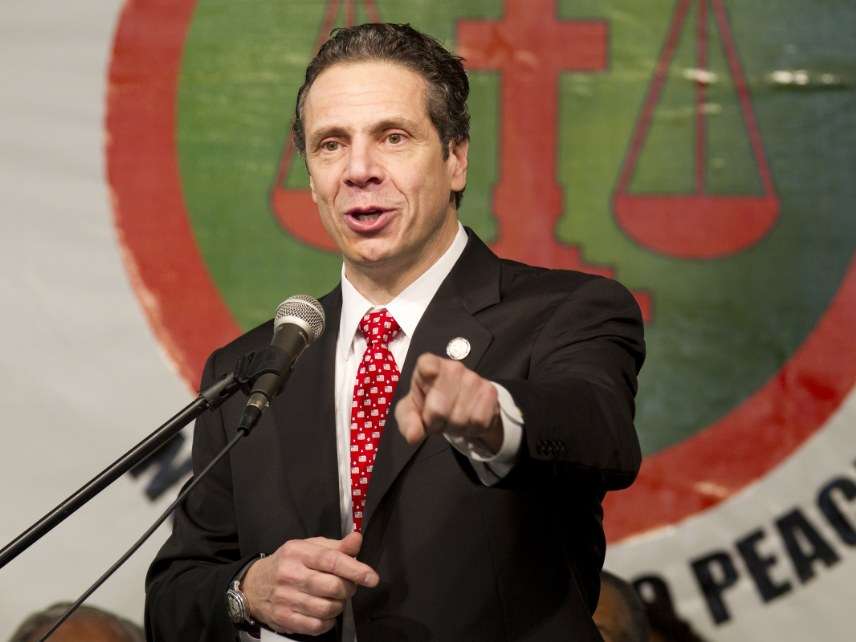Gov. Cuomo Wants a New Hate Crime Law. Would Police Use It to Suppress Protests?
Enhanced sentences for rioting against a "protected class"? In two states, that now includes law enforcement.

New York Gov. Andrew Cuomo says he wants harsher criminal penalties for rioting, but his proposal could easily blow back on peaceful protesters.
Pointing to last weekend's violence in Virginia, Cuomo is pushing to expand the state's hate crime laws with what he's calling the "Charlottesville provisions." Under the new rules, according to the Auburn Citizen, rioting that targets a protected class would become a more severe felony than it is now, leading to a potential penalty of seven years in prison. Inciting such a riot would jump up from a misdemeanor to a felony, and could now get you up to four years in prison, based on New York State's sentencing guidelines.
As is typical when a politician makes grandstanding announcements about fighting crime, Cuomo sees—or wants you to see—only some of the likely outcomes. He says these laws wil protect marginalized minorities against bigots. He does not discuss the power dynamic that hate crime laws set up. Once you establish a list of protected classes, many different groups will try to get onto it. Right now, law enforcement interests around the country are trying to add police and first responders to the list.
Louisiana and Kentucky have done just that. In Louisiana, one police chief has declared that simply resisting arrest now qualifies as a hate crime.
In that context, consider how law enforcement may view protests against police abuse. Typically, most of these protesters are peaceful, but these actions often end up drawing black-clad people looking to cause trouble. Frequently, the violent activities by that handful of people will prompt police to try to shut down entire protests and arrest those who refuse to disperse, regardless of whether those arrestees had done anything violent. We saw this happen repeatedly in Ferguson, Missouri, in the protests after Mike Brown's shooting. There were peaceful protesters, and there were people who threw rocks and set fires. But the militarized police frequently shut the whole protest down.
We have prominent figures who see even the mildest criticisms of law enforcement as an incitement to attack cops. We have a president who believes the fabricated narrative that our police forces are under assault and who is willing to consider new federal laws to enhance sentences for crimes that target law enforcement. It doesn't take a leap of the imagination to visualize Cuomo's idea being used to stop or at least chill protests against law enforcement misconduct.
Large public protests often target government behavior, whether we're talking the White House or City Hall. The Charlottesville protests started with white nationalists protesting the city's decision to remove a Confederate monument, before it all went downhill. The potential for this law to be used to suppress mass public activism of other sorts is high.
It would be naïve to assume this wouldn't happen. A law proposed to stop attacks on black people would ultimately be used against Black Lives Matter protesters.


Show Comments (30)